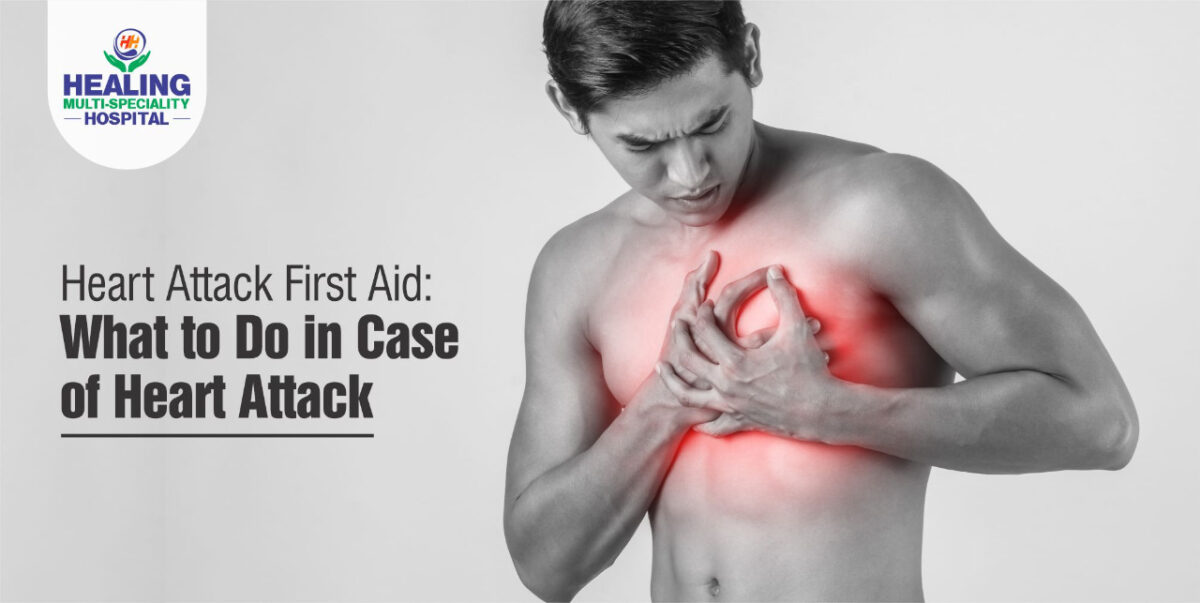A heart attack occurs when the blood flow that carries oxygen to the heart is blocked. If not treated in time, it can lead to cardiac arrest and even death. This article discusses its symptoms, first aid and how to prevent oneself from a heart attack.
Contents
- Symptoms of Heart Attack
- First Aid- What to do in case of a Heart Attack?
- Prevention is better than Cure

Symptoms of Heart Attack
Although there are some symptoms that can warn you against a heart attack but in some cases it has been observed to occur without any visible symptoms. In most cases, the following symptoms can help you discover if a person is having a heart attack:
- Uneasiness and shooting pain in chest; spreading towards arms, shoulders, neck, jaw, back and stomach.
- Shortness of breath
- Sweating
- A feeling of Nausea (found mostly in women)
- Lightheadedness, dizziness and fainting
- Numbness and tingling in arm (usually left)
- Weakness and fatigue
- Change in mental status (usually in older people)
- Skin growing pale

First Aid- What to do in case of a Heart Attack?
-
Call the Emergency Helpline number immediately: Call the emergency helpline number 112 or health helpline number 108 as soon as you see any symptoms of heart attack.
-
Make the person sit or lie down: Try to make the person having a heart attack sit or lie down to lay less stress on the heart. This will also prevent them from collapsing if they are standing.
-
Loosen any tight clothing: If you see them wearing any tight clothes, loosen them up to help them breathe better.
-
Chew and swallow Aspirin: Ask if they are allergic to aspirin or not allowed to take one. If they can, give them a tablet of aspirin.
-
Give them heart medications, if any: Ask them if they have been prescribed Nitroglycerin or any other medication to help them ease their pain.
-
Follow AED, if available: If an automatic external defibrillator (AED) is available, follow the instructions on the AED device. The AED automatically discovers if a person needs an electrical shock to restore the beating of the heart.
-
Reassure the person till the help arrives: It is difficult to stay calm in such a situation but all efforts should be made to reassure the person suffering from heart attack that everything will be fine. Anxiety can increase the heart’s need for oxygen and can worsen the heart attack. Ask them to take deep breaths and try to comfort them.
-
Give CPR: CPR or Cardiopulmonary Resuscitation is a technique used to revive a person if he/she has stopped breathing or the heartbeat has stopped. If you know CPR, begin chest compressions at a rate of 100 compressions per minute. After 30 compressions, begin rescue breathing. If you do not know CPR, you can help by doing a Hands Only CPR. This involves pushing hard and fast in the center of the chest until help arrives, or until the person begins to move. This is safe for adults or children over the age of eight. A CPR attempt can increase the chances of survival for the person having a heart attack.
Prevention is better than Cure
-
Quit Smoking: Smoking doubles or more the chances of a heart attack. Hence if you do smoke, it is advised that you quit immediately.
-
Exercise: It is advised that you exercise regularly to improve your health. The chances of heart attacks increase if you are obese and so adequate efforts should be made to lose weight. However it is suggested that you talk with your doctor before starting a fitness plan. To find the best heart specialist in Chandigarh, click on the link below-
-
Limit alcohol: One drink a day if often recommended by doctors to reduce the risk of heart attack. But if you drink more alcohol on a daily basis, it can damage your heart and cause other health problems.
-
Keep your cholesterol, blood pressure and diabetes in control: High cholesterol, Blood pressure, Hypertension, Diabetes can increase the risk of having a heart attack to manifold. Hence it is recommended that you keep your health in check.
-
Eat a healthy diet: Increase your intake of whole grains, chicken, fish, fruits, vegetables and decrease your intake of red meat, saturated fats and sugar. Depending on individual health, a doctor may be able to guide you better on what you should eat and what you should avoid. Know more about cardiology and the best cardiologist in Chandigarh here- https://healinghospital.co.in/cardiology-department/
























